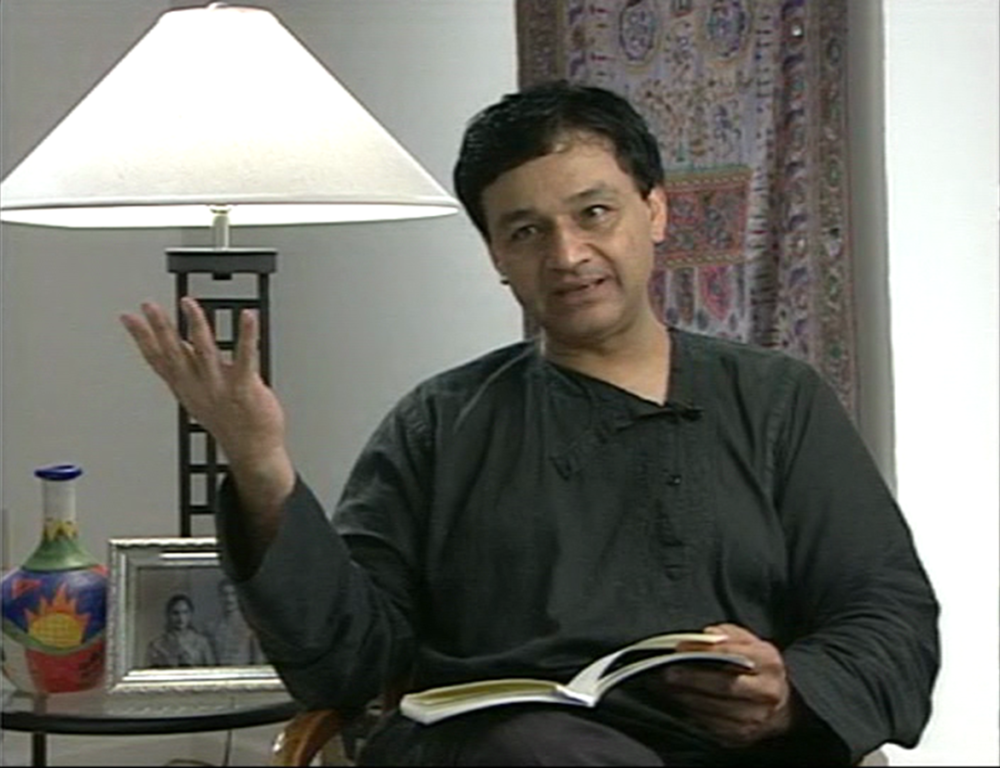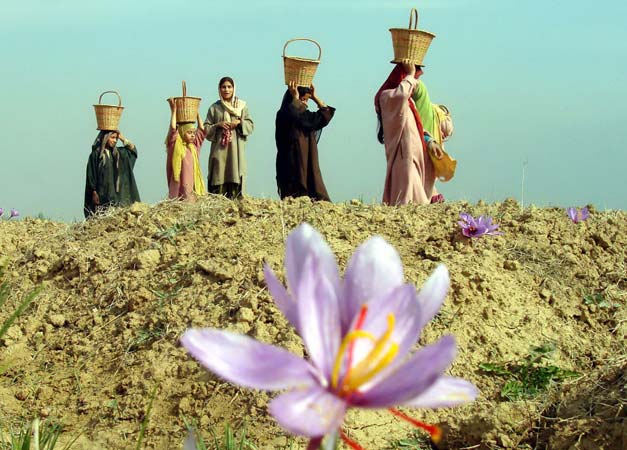by Abdaal Ahmad Bhat
The spectacle of falling leaves virtually hypnotises the beholder. One has to see it to believe it. Like the dancing snowflakes, the falling leaves gently kiss the lithosphere and accumulate in uneven heaps.

Come September and the resplendent season of autumn sets in in the Kashmir vale. Autumn has its own beauty, grandeur, magnificence, serenity and charm. The salubrious environs of Kashmir cannot be imagined without the bewitching season of autumn. The Kashmiri-born American poet, Agha Shahid Ali celebrates autumn in his own inimitable style:
‘I will die in autumn in Kashmir‘
One fails to understand why didn’t Shahid express his desire to live in autumn in Kashmir when it is no less charming and enchanting than other seasons. Perchance, Shahid pined to taste death when it is the tastiest in the autumn season. Samuel Taylor Coleridge has rightly said:
‘Death is the mead of life’
If the spring has appropriated green colour, for the abundance of chlorophyll (green colouring pigment) in the leaves; autumn is characterized by the golden hue, for xanthophyll (yellow colouring pigment) concentration in the foliage. The fruity smell in the windless air invigorates body, mind and soul.

The arrival of autumn in Kashmir is heralded by the melodious song of cicadas. Cicadas in their thousands join the chorus by continuously fluttering their wings producing a high-decibel melody. Their uninterrupted humming is music to the ears and mesmerizingly enchanting. The cicada music is unique to Kashmir and virtually lends it a heavenly touch for quite some time. The cicada humming soothes the frayed nerves of the hard-toiling farmers and ecstasy of a different sort overpowers them. The cicadas sing in unison to celebrate the onset of autumn.
During my school days, the cicada song would shake me out of slumber and make me prepare hard for the annual examination which was religiously held in the month of October in Kashmir’s government schools. By the time the examination was over, the cicadas would disappear and with them the soothing music, depriving us all of the heavenly bliss which we would have enjoyed during our leisurely hours.
The sultry days of summer give way to the moderately hot days of autumn marked by the not-so-intense crepuscular chill.
Autumn is a season of harvest and happiness. After putting in sweat, blood, tears and toil, the farmer reaps his harvest. His hard work is rewarded by Mother Earth as he receives bounties doled out by Nature. The russet hues tinge the valley’s landscape as the apple-laden boughs swaying gleam in the misty air.
The reddish hue of Chinar leaves the beholder spellbound. The gigantic chinars with fluttering crimson leaves mesmerise the visitors and the natives alike. It was in the awe of autumn that Allama Iqbal-the bard of the East, quipped:
Jis Khaak ke zameer mein ho aatish-e-chinar
Mumkin nahi ki sard ho wohk haak-e-arjimand
(The soil which has the fire of chinar in its belly, Will that celestial soil ever turn cold?)
Mesmerised by the gently fluttering scarlet Chinar leaves spewing fire virtually, Sheikh Mohammed Abdullah chose Aatish-e-Chinar as the title of his autobiography.

The vast tracts of paddy fields turn golden as if nature has strewn gold on the paddy ears. The farmers gleefully scythe the harvest and treasure Nature’s bounties in abundance. The bliss autumn brings in its wake is wanting in other seasons of the year. The farms and apple orchards are abuzz with activities and the blooming countenances of the farmers betray contentment and gratitude towards the Almighty.
Faiz Ahmad Faiz, in one of his poems, When Autumn Came portrays autumn as cruel and ruthless which strips the trees naked much to the chagrin of aves. It deprives the trees of their leaves and birds of their nests. It throttles the hapless birds and kills them before the hunter shoots them down. Faiz describes autumn as a season of death and spring as a season of resurrection.

Apple picking is done in autumn in Kashmir. The colourful and luscious fruit is ready in abundance to be picked lest it should fall. Apple picking is joyful as the farmer gets rewarded by nature for his relentless toil around the year. The fruity fragrance emanating from the ripened apples mesmerises the atmosphere. The joy of having a bumper crop has been masterfully described by Robert Frost in his beautiful poem After Apple Picking.
The author narrates the joy of apple picking and the precautions one needs to take while picking apples. The author’s joy knows no bounds as he has to pick thousands of apples. When the author is done with apple picking, a sort of winter sleep overtakes him and the hoary grass appears magnified to him. The author says that apple picking is quite tiresome but hugely rewarding. He compares sleep to death and apple picking to the trials and tribulations of this earthly life.
The somnolent autumn breeze induces the trees to shed leaves to tide over the harsh winter. The golden autumnal leaves shed by the trees get buried in many layers of snow in the winter. They get decomposed and add organic nutrients to the soil thereby boosting their fertility.

The fallen chinar leaves, on the other hand, are collected in heaps and set on fire. The bonfire is sprinkled with water to get charcoal. The half-burnt chinar leaves are stuffed in Kangris (firepot) during winter to beat the marrow-chilling cold of chillaikalan (the harshest winter phase). The charred chinar leaves radiate enough heat to help Kashmiris keep themselves warm in the benumbing cold.
The spectacle of falling leaves virtually hypnotises the beholder. One has to see it to believe it. Like the dancing snowflakes, the falling leaves gently kiss the lithosphere and accumulate in uneven heaps.
Colours of autumn 🍂 from yesterday’s drive to Kargil crossing the Zoji pass. I’ve made so many trips to Kargil over the years but I’ve never seen the beautiful riot of colours that I was lucky to see yesterday. pic.twitter.com/8ioUz15kkj
— Omar Abdullah (@OmarAbdullah) October 31, 2020
The crocuses sprout in autumn in the highlands of the vale as daffodils crop up in spring in the meadows. Literally, nature drapes the karewas of Kashmir in a floral blanket with the multihued crocuses dotting the highlands. The plucking of saffron flowers is a unique experience and the basketfuls of saffron flowers are no less a treasure.


The following lines beautifully describe this salubrious season:
The serenely sublime season of autumn;
Is marvellously enchanting and awesome;
The fruity breeze shakes the farmers out of inactivity;
To gather a plethora of Nature’s bounties ready in plenty;
The velvety saffron, luscious apples and golden paddy ears;
Are a befitting reward to Man’s toil and tears?
Hard work is rewarded in equal measure;
By the life-sustaining and benevolent Nature.
(The author is an Assistant Professor at the Government Degree College, Pulwama. The opinions expressed in this article are those of the author and do not purport to reflect the opinions or views of Kashmir Life.)














